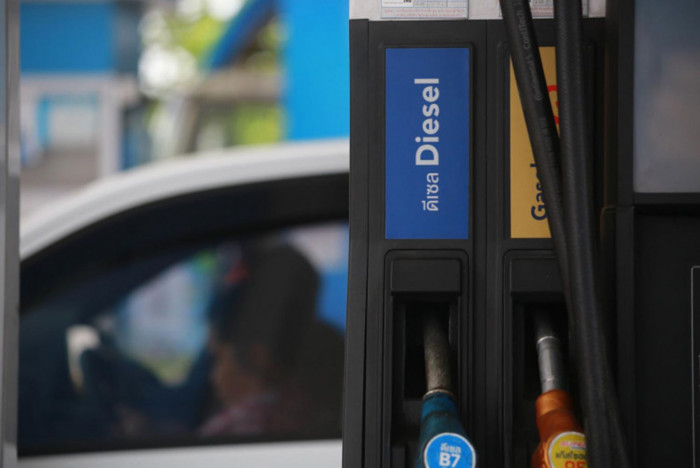Falling world oil prices reduce need for subsidies and will help cut B47-billion debt
PUBLISHED : 6 May 2025 at 19:13
Listen to this article
(Photo: Somchai Poomlard)
The state Oil Fuel Fund’s huge loss of 47.7 billion baht is expected to be wiped out this year thanks to a decrease in global crude oil prices, says an Energy Ministry official.
The fund is a key tool used by the government to regulate domestic oil and gas prices, serving as a cushion when prices fluctuate and rise. But subsidising fuel, notably diesel and liquefied petroleum gas (LPG), through the fund substantially diminished its liquidity and caused debt to pile up, sometimes exceeding 100 billion baht when subsidies are high.
The current loss is likely to evaporate in the second half of 2025 based on lower global oil prices and additional oil production from Opec and its allies, said the official, who requested anonymity.
A new trade war triggered by US President Donald Trump is expected to slow international trade, leading to a sluggish economy and lower oil demand, he said.
The benchmark Brent crude price has fallen 18% since the start of 2025 and is now around $61 a barrel.
This is a positive for the Oil Fuel Fund Office (Offo), which manages the fund, as it can save spending on the price subsidies.
“We expect to see a shift from red to black on the Offo’s balance sheet after it has been plagued with losses for many years since the pandemic,” said the official.
The loss fell to 47.7 billion baht from more than 52 billion on April 20, comprising 7.02 billion baht for subsidising oil and 45.4 billion for subsidising LPG, which is used as cooking gas by households, according to media reports.
The Dubai crude oil reference price is expected to be $62.60 per barrel on average this week due to concerns over the prolonged US-China trade war, according to Thai Oil Plc.
Prices of liquefied natural gas (LNG) have also been declining, which will result in less expensive power bills in Thailand, the official said. Gas makes up 60% of fuels used for electricity generation in the country.
Up to 50% of the gas supply comes from domestic sources in the Gulf of Thailand, with 20% from Myanmar and 30% from imported LNG.
The official said the price of LNG scheduled to be delivered to Asian countries in May is $13 per million British thermal units, the lowest since Oct 11 last year.
Do you like the content of this article?
https://www.bangkokpost.com/business/general/3019116/oil-fund-loss-likely-to-evaporate-in-h2




